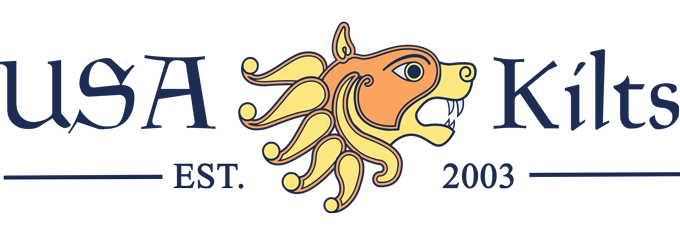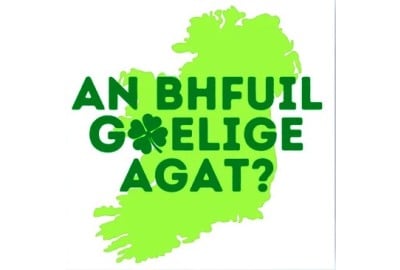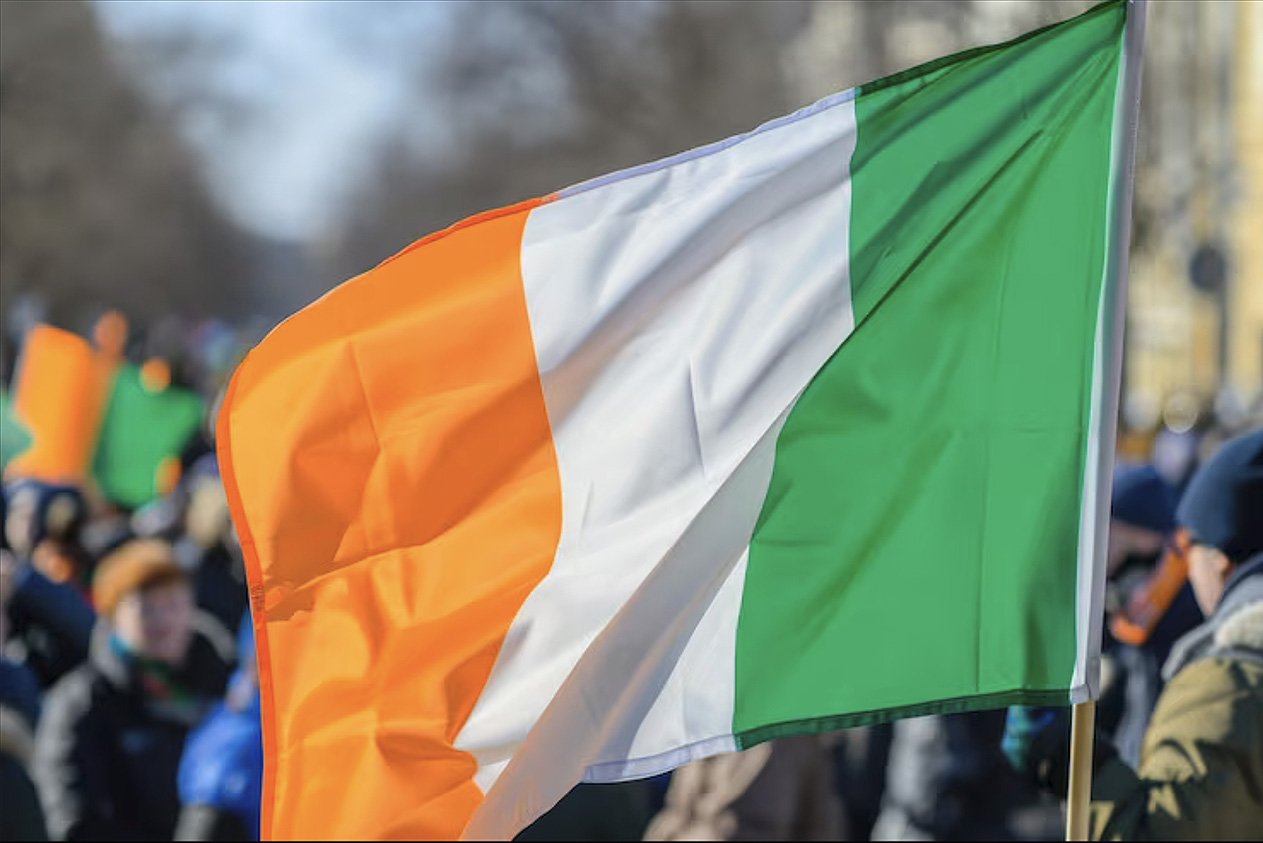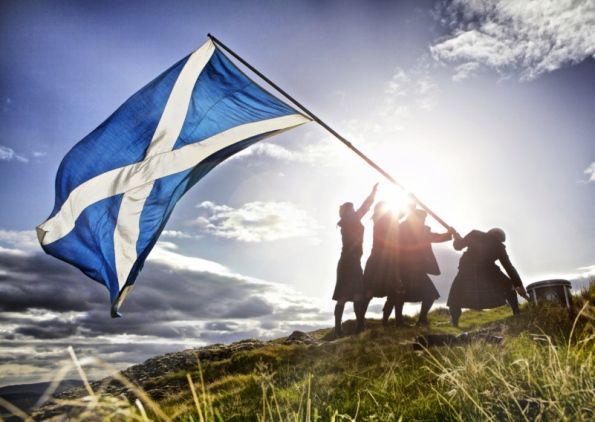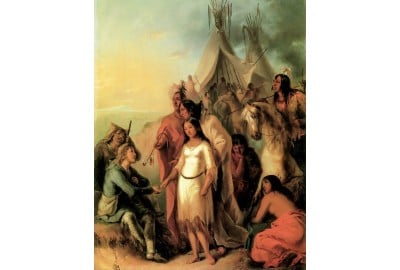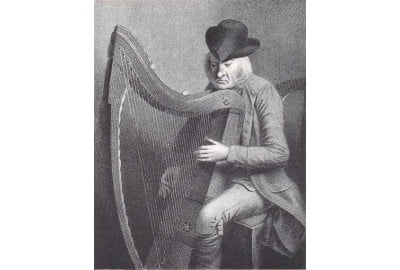Learning Gaelic Feeds the Celtic Soul!
There’s something truly magical and deeply fulfilling about learning Gaelic — whether it’s Irish (Gaeilge) or Scottish Gaelic (Gàidhlig).
If you feel that donning a kilt is more than just a fashion statement, you may feel called to learn the ancient tongue as part of your explorations into your heritage.
Learning Gaelic isn’t just about vocabulary and grammar. For most, it is far more than an abstract exercise in mental flexibility. Rather, it is a way to revive and internalize a living piece of your ancestral culture. It's a direct line to the stories, songs, and spirit that shaped Celtic culture for thousands of years.
Speaking Gaelic even a little — a greeting, a toast, or a line from an old song — feels like unlocking a door to history. It turns your appreciation for Celtic culture from something you wear or admire into something you live and breathe. It deepens the meaning behind the tartan you wear, the tunes you play, and the places you dream of visiting.
And best of all, learning Gaelic connects you to a growing global community of learners and native speakers who share that same spark. And that's key because sadly the language is not secure. A great deal of work has been done, and is being done to preserve Gaelic in Ireland, Scotland and other places. It seems the Irish have been most successful. But we should not rest on our laurels here -- Scotland is facing more of an uphill climb in maintaining interest and institutional support. In either case, the cause can only be helped by more and more people in the global Celtic diaspora learning. (see the end of the article for more on this)
So if you’ve ever felt that tug, here's a step by step recipe for doing it.
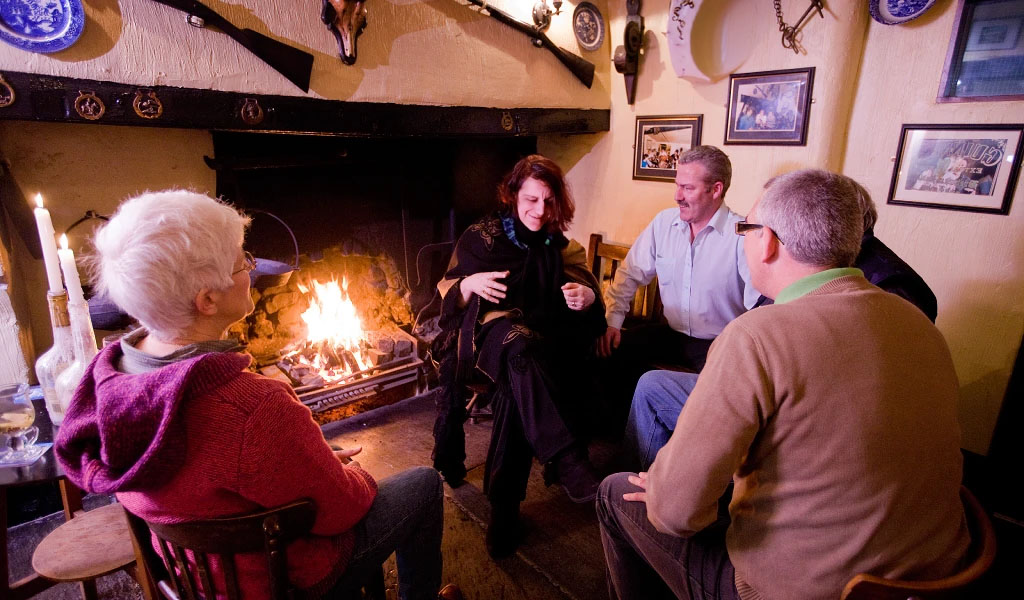
Tips for Success - Learn the Languge and Avoid Frustration
-
Start small and steady – 10–15 minutes a day is better than occasional marathons.
-
Listen early, even if you don’t understand yet — sound immersion helps more than you think.
-
Mix structure and fun – use formal lessons but also songs, movies, or games.
-
Join a community – speaking even a little with others accelerates fluency dramatically.
-
Celebrate small wins – ordering a pint in Irish or greeting someone in Gaelic is progress.

Learning Irish Gaelic (Gaeilge)
1. Choose the Right Starting Point
Irish Gaelic is taught with a variety of accents and dialects — the three main ones are Connacht (West), Munster (South), and Ulster (North).
For beginners, most modern courses (like Duolingo, Oideas Gael, and Bitesize Irish) use Connacht Irish because it’s widely understood.
2. Best Online Courses for Beginners
-
Duolingo – Irish Course
Free, gamified introduction covering vocabulary, grammar, and pronunciation. Great for daily consistency. -
Bitesize Irish
Paid but structured step-by-step course with audio from native speakers and a welcoming learner community. -
Gaelchultúr
Offers professional-level courses used by Irish civil servants; excellent pronunciation and grammar training. -
FutureLearn: Irish Language and Culture (University of Galway)
Free course blending culture and language, good for self-paced learning. -
Oideas Gael
One of the most respected Irish-language schools — offers online classes and in-person summer schools in Donegal.
3. Audio & Listening Practice
-
Raidió na Gaeltachta — Irish-language radio, ideal for immersion.
-
TG4 — Irish-language TV with subtitles; includes news, dramas, and sports.
-
Podcasts: Beo ar Éigean, Motherfoclóir, and Blas Pod are popular among learners.
4. Practice with Real People
-
Join Conradh na Gaeilge Craobhacha in U.S. cities (like New York, Boston, and Chicago) — local branches host conversation circles (ciorcail chomhrá).
-
Use Meetup.com to find “Irish Language” groups or cultural societies near you.
-
Check Discord or Reddit (r/Gaeilge) communities for free conversation meetups online.
5. Cultural Immersion Opportunities
-
Irish Language Immersion Weekends in the U.S. — often hosted by universities or Irish heritage groups.
-
Online conversation circles through Gaelchultúr and Bitesize Irish.
-
Attend events by the Irish Cultural Center of New England, Irish Arts Center (NYC), or Gaeltacht Minnesota, which host Irish classes and festivals.
Learning Scottish Gaelic (Gàidhlig)
1. Getting Started
Scottish Gaelic has fewer dialectal divisions for beginners to worry about — most resources teach Standard Highland Gaelic.
Pronunciation can be tricky, but modern resources use clear, audio-rich instruction.
2. Best Online Courses
-
Duolingo – Scottish Gaelic Course
Free and fun, with strong grammar structure and frequent updates. -
LearnGaelic.scot
The official hub for Gaelic learners, supported by Bòrd na Gàidhlig — offers beginner to advanced lessons, dictionaries, and video tutorials. -
Atlantic Gaelic Academy
Based in Nova Scotia (where Gaelic is also spoken), offers live online classes for North American learners. -
Sabhal Mòr Ostaig (UHI)
Scotland’s national Gaelic college, offering accredited distance-learning courses, certificates, and immersion weeks. -
BBC Beag air Bheag
Free self-paced course with everyday phrases and pronunciation tips.
3. Listen & Immerse
-
BBC Radio nan Gàidheal — News, talk shows, and traditional music entirely in Gaelic.
-
BBC Alba — Gaelic television with subtitles; perfect for passive listening practice.
-
Podcasts: One Minute Gaelic (Radio Lingua Network) and Gaelic with Jason Bond are great for beginners.
4. Find Community
-
Join online groups:
-
r/ScottishGaelic (Reddit)
-
Gàidhlig nan Ameireaganach (Facebook group for American learners)
-
Discord servers like Gàidhlig Learners host weekly speaking sessions.
-
Scottish Gaelic Society of America — offers cultural events and online workshops.
-
Many U.S. Highland games (like Grandfather Mountain Highland Games or Stone Mountain Highland Games) include Gaelic lessons and song workshops.
5. Immersive & Cultural Experiences
-
Seachdain na Gàidhlig (World Gaelic Week) — every March, with many online events accessible globally.
-
Short courses with Sabhal Mòr Ostaig — you can attend via Zoom even from the U.S.
-
Learn through music: traditional songs by Julie Fowlis or Runrig include clear, slow Gaelic lyrics.
Irish Gaelic (Gaeilge) – Starter Resource Pack
Courses & Lessons
- Duolingo: Irish – Free, fun gamified lessons for beginners.
- Bitesize Irish – Structured subscription course with native-speaker audio.
- Gaelchultúr – Professional-quality online courses with pronunciation guides.
- Oideas Gael – Renowned Irish immersion school offering live virtual courses.
- FutureLearn: Irish Language & Culture – Free course by University of Galway.
Listening & Media
- TG4 – Ireland’s Irish-language TV channel (with subtitles).
- Raidió na Gaeltachta – 24-hour Irish-language radio stream.
- Podcasts:
- Beo ar Éigean – Conversational Irish for intermediate learners.
- Motherfoclóir – A fun, modern look at Irish words and culture.
- Blas – Music, news, and culture in Irish.
Tools & Reference
- Teanglann.ie – Dictionary with sound files and grammar info.
- Foclóir.ie – Modern Irish–English dictionary.
- Irish Grammar Monster – Free grammar guide for English speakers.
- YouTube Channels:
- TG Lurgan – Popular songs reimagined in Irish.
- Learn Irish with Emma – Clear, beginner-friendly lessons.
Community & Practice
- r/Gaeilge – Active learner community.
- Discord: Join “Irish Language Learning” or “Ciorcal Comhrá” servers for live voice chats.
- U.S. cultural centers with Irish-language programs:
Scottish Gaelic (Gàidhlig) – Starter Resource Pack
Courses & Lessons
- Duolingo: Scottish Gaelic – Free, interactive beginner course.
- LearnGaelic.scot – Official Gaelic learning hub with video lessons.
- Atlantic Gaelic Academy – Online classes tailored for North American time zones.
- Sabhal Mòr Ostaig (UHI) – Scotland’s national Gaelic college offering distance learning.
- BBC Beag air Bheag – Free BBC beginner course.
Listening & Media
- BBC Radio nan Gàidheal – 24-hour Gaelic radio station.
- BBC Alba – Gaelic television with subtitles.
- Podcasts:
- One Minute Gaelic – Bite-sized audio lessons.
- Gaelic with Jason Bond – Conversational and grammar-focused episodes.
- Slighe nan Gàidheal Audio Series – Lessons from U.S.-based Gaelic enthusiasts.
Tools & Reference
- Am Faclair Beag – The essential Gaelic–English dictionary.
- LearnGaelic Dictionary – With audio pronunciation.
- YouTube Channels:
Community & Practice
- r/ScottishGaelic – Supportive online learner community.
- Facebook: “Gàidhlig nan Ameireaganach” and “Scottish Gaelic Learners Worldwide”.
- Discord: “Scottish Gaelic Learners” – weekly live chat practice.
- U.S. organizations:
Music for Immersion
- Julie Fowlis – Contemporary Gaelic singer with clear diction.
- Runrig – Legendary Scottish rock band performing in Gaelic.
- Mary Black & Clannad – Irish groups blending modern and traditional Gaelic songs.
Who Exactly Is Preserving The Gaelic Languages?
There are several reputable organizations working hard to preserve and promote the Gaelic (Goidelic) languages in Ireland and Scotland. Here's a quick reference to them. As your studies progress, you may want to learn more or even consider donating to help support their missions.
| Organization | Country/Region | Mission / Role | Funding Source | Website |
|---|---|---|---|---|
| Foras na Gaeilge | Ireland | Statutory body promoting Irish across Ireland; develops terminology, funds partners, supports education. | Public funding (North/South implementation body) | forasnagaeilge.ie |
| Conradh na Gaeilge | Ireland | Cultural NGO (founded 1893) advocating for Irish usage, rights, and awareness. | Membership, fundraising, grants | cnag.ie |
| Gael Linn | Ireland | Promotes Irish language and culture through education and media. | Nonprofit donations, public support | gael-linn.ie |
| Glór na nGael | Ireland | Supports community Irish-language initiatives and local economic development. | Foras na Gaeilge funding | glornangael.ie |
| Cumann na bhFiann | Ireland | Youth organization fostering Irish usage among young people. | Foras na Gaeilge grants | cnmb.ie |
| Gaeloideachas | Ireland | Supports Irish-medium schools outside the Gaeltacht regions. | Education partnerships, government funding | gaeloideachas.ie |
| An Foras Pátrúnachta | Ireland | Largest patron of Irish-medium schools; advocates multilingual education. | Department of Education funding | foras.ie |
| Gaelchultúr | Ireland | Provides Irish-language training, especially for public sector workers. | Course fees, contracts | gaelchultur.com |
| Gaelphobal | Ireland | Resource and support network for Irish-language communities and planning groups. | Public and private funding | gaelphobal.ie |
| Údarás na Gaeltachta | Ireland | State agency developing the Gaeltacht’s economy and language sustainability. | Irish government agency | udaras.ie |
| Bòrd na Gàidhlig | Scotland | National body promoting Scottish Gaelic under Gaelic Language (Scotland) Act 2005. | Scottish Government | gaidhlig.scot |
| An Comunn Gàidhealach | Scotland | Cultural organization (1891) running Royal National Mòd, promoting Gaelic arts. | Membership, events, sponsorships | ancomunn.co.uk |
| Comunn na Gàidhlig | Scotland | Charity supporting Gaelic learning and community engagement. | Charitable grants, Bòrd na Gàidhlig support | cnag.org |
| Clì Gàidhlig | Scotland | Provides courses, materials, and advocacy for Gaelic learners. | Membership, course fees | cli.org.uk |
| Royal Celtic Society | Scotland | Historic society supporting Highland culture, Gaelic, and education. | Donations, events | royalcelticsociety.scot |
| Seachdain na Gàidhlig | Scotland | Annual World Gaelic Week celebrating Gaelic language and culture globally. | Bòrd na Gàidhlig, sponsorships | seachdainnagaidhlig.scot |
| Celtic League | Pan-Celtic | Promotes cooperation among Celtic nations and their languages. | Membership, donations | celticleague.net |
| Columba Project | Ireland & Scotland | Cross-community initiative connecting Gaelic speakers in Ireland and Scotland. | Charitable & cultural funding | Wikipedia |
